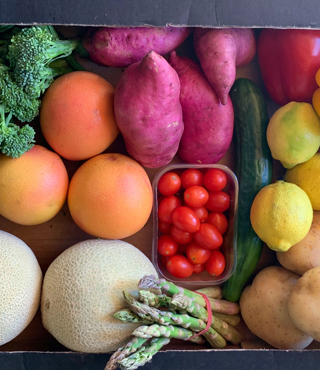
Simple Lifestyle Changes to Boost Your Eye and Ear Health
Did you know that a healthy diet doesn’t just benefit your overall well-being, but also plays a big role in keeping your eyes and ears in good shape? It’s true! What you eat can help protect your vision and hearing, and even help manage conditions like diabetes and high blood pressure, which can negatively impact these important senses.
How Health Conditions Affect Your Eyes and Ears
Similarly, high blood pressure (or hypertension) isn’t just bad for your heart—it can also mess with your ears and eyes. Tinnitus, that annoying ringing in the ears, is often linked to high blood pressure because it affects blood flow in the ear. If left unchecked, it can lead to hearing loss. Hypertension can also damage the blood vessels in your eyes, causing hypertensive retinopathy, which may lead to vision problems or even blindness. Once again, a balanced diet can help keep blood pressure in check, reducing these risks.
Top Foods to Improve Eye and Ear Health
So, what should you be eating to protect your eyes and ears? Luckily, there’s no need for an extreme diet overhaul—just incorporate more of these nutrient-packed foods into your daily meals:
-
Omega-3 Fatty Acids
Why they help: Omega-3s are fantastic for eye health, especially in preventing dry eyes and supporting the retina. They also have anti-inflammatory benefits that can protect both your eyes and ears.
Sources: Salmon, mackerel, sardines, flaxseeds, walnuts.
Hearing bonus: Omega-3s help with blood flow to the inner ear and may reduce age-related hearing loss.
-
Vitamin A
Why it helps: Essential for night vision and protecting the surface of your eye, Vitamin A helps keep your vision sharp in low-light conditions.
Sources: Carrots, sweet potatoes, spinach, kale.
Hearing bonus: It’s also thought to support inner ear health and may protect the structures responsible for hearing.
-
Vitamin C
Why it helps: As a powerful antioxidant, Vitamin C fights off free radicals that can damage your eyes and contribute to cataracts or age-related macular degeneration (AMD).
Sources: Oranges, strawberries, bell peppers, broccoli.
Hearing bonus: Vitamin C can protect your ears from oxidative stress, a cause of hearing loss.
-
Vitamin E
Why it helps: Another antioxidant powerhouse, Vitamin E protects eye cells and may lower your risk of developing cataracts and AMD.
Sources: Nuts, seeds, spinach, sunflower oil.
Hearing bonus: It shields the inner ear from damage and may help reduce age-related hearing issues.
-
Zinc
Why it helps: Zinc helps transport Vitamin A to the retina and is important for eye health. It may even slow down the progression of AMD.
Sources: Oysters, beef, pumpkin seeds, legumes.
Hearing bonus: Zinc supports your immune system, which helps prevent ear infections that can harm your hearing.
-
Lutein and Zeaxanthin
Why they help: These antioxidants, found in the retina, protect your eyes from harmful light and oxidative damage. They can help lower the risk of cataracts and AMD.
Sources: Spinach, kale, eggs, corn.
Hearing bonus: While mainly beneficial for your eyes, their antioxidant power might also protect the inner ear.
How Lifestyle Choices Can Protect Your Vision and Hearing
You don’t need to give up everything you love to eat to maintain good eye and ear health. It’s all about balance. Add more nutrient-rich foods like vegetables, fruits, nuts, seeds, and fish to your daily diet, and you’ll feel healthier overall. Plus, you’ll be giving your eyes and ears the support they need to stay in great shape for years to come!



